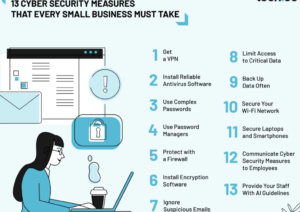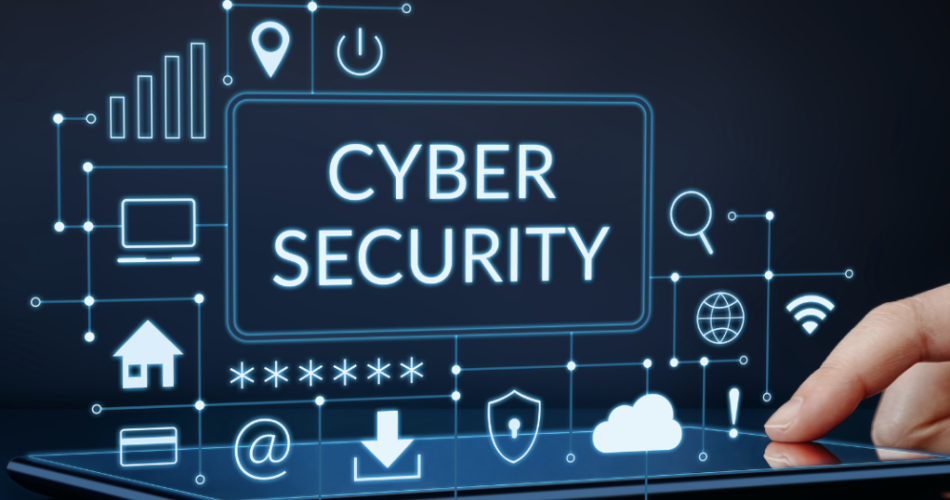In today’s interconnected world, where technology plays a central role in our personal and professional lives, ensuring the security of our digital assets has become more important than ever before. Cyber security, the practice of protecting computer systems, networks, and data from unauthorized access or attacks, is essential to maintaining a safe online environment. With the increasing prevalence of cyber threats and attacks, individuals and businesses need to be proactive in implementing robust cyber security measures. This article will explore the importance of information security, common threats and attacks, different types of cyber security measures, essential practices for individuals and businesses, available tools and technologies, certifications and training programs, as well as future trends in the field.

Cyber Security
Contents
- 1 Importance of Cyber Security in Today’s Digital World
- 2 Common Cyber Security Threats and Attacks
- 3 Types of Cyber Security Measures
- 4 Essential Cyber Security Practices for Individuals
- 5 Essential Cyber Security Practices for Businesses
- 6 Cyber Security Tools and Technologies
- 7 Cyber Security Certifications and Training Programs
- 8 Cyber Security Trends and Future Developments
- 9 Conclusion: Taking Proactive Steps to Protect Your Digital Fortress
Importance of Cyber Security in Today’s Digital World
As technology advances and the internet becomes an integral part of our daily lives, the risk of cyber threats and attacks has grown exponentially. Cyber criminals are constantly developing new techniques to exploit vulnerabilities in computer systems and networks, making it crucial for individuals and businesses to prioritize cyber security. The consequences of a successful cyber attack can be devastating, ranging from financial loss and reputational damage to the compromise of sensitive information. By implementing effective information security measures, individuals and businesses can minimize the risk of falling victim to cyber attacks and protect their digital assets.
Common Cyber Security Threats and Attacks
There are various types of cyber security threats and attacks that individuals and businesses should be aware of. One common threat is phishing, where cyber criminals trick users into divulging sensitive information such as passwords or credit card details by impersonating reputable entities. Another prevalent attack is malware, which includes viruses, worms, and ransomware that can infect computer systems and cause significant damage. Distributed Denial of Service (DDoS) attacks, where multiple systems flood a target with traffic to overwhelm it, are also widely used by cyber criminals. Other threats include social engineering, where hackers manipulate individuals into revealing confidential information, and insider attacks, where employees misuse their access privileges to compromise security.
Types of Cyber Security Measures
To protect against the various cyber security threats and attacks, individuals and businesses can implement different types of cyber security measures. One fundamental measure is strong access control, which involves the use of complex passwords, multi-factor authentication, and regular password updates. Encryption is another crucial measure that transforms data into unreadable formats, ensuring that even if it is intercepted, it remains secure. Additionally, firewalls and intrusion detection systems can be deployed to monitor and control network traffic, preventing unauthorized access. Regular software updates and patch management are also vital to address vulnerabilities and protect against known security flaws.
Essential Cyber Security Practices for Individuals
Individuals can take several essential cyber security practices to protect their personal information and digital assets. First and foremost, it is important to create strong and unique passwords for all online accounts and avoid reusing them. Enabling multi-factor authentication whenever possible adds an extra layer of security. Regularly updating operating systems, applications, and antivirus software helps to safeguard against known vulnerabilities. Being cautious while clicking on links or downloading attachments in emails, especially from unknown sources, can prevent falling victim to phishing or malware attacks. Finally, backing up important data regularly and storing it securely helps in case of data loss due to cyber attacks.
Essential Cyber Security Practices for Businesses
Businesses face unique cyber security challenges due to the large amount of sensitive data they handle and the potential financial and reputational impact of a successful attack. Implementing a robust cyber security framework is crucial for businesses to protect their assets. This includes conducting regular risk assessments to identify vulnerabilities and developing a comprehensive incident response plan. Employee training and awareness programs are essential to educate staff about cyber security best practices and raise awareness about potential threats. Regular monitoring and logging of network activities can help detect and respond to potential breaches in a timely manner. Additionally, businesses should consider implementing network segmentation, data encryption, and access controls to further enhance their cyber security posture.
Cyber Security Tools and Technologies
There are various tools and technologies available to assist individuals and businesses in strengthening their cyber security defenses. Antivirus software is a fundamental tool that detects and removes malicious software from computer systems. Intrusion detection and prevention systems provide real-time monitoring and protection against unauthorized access. Virtual Private Networks (VPNs) encrypt internet connections, ensuring secure communication over public networks. Security information and event management (SIEM) systems collect and analyze security log data to detect and respond to potential threats. Additionally, vulnerability scanners and penetration testing tools help identify weaknesses in systems and networks, allowing organizations to address them before they can be exploited.
Cyber Security Certifications and Training Programs
With the increasing demand for cyber security professionals, certifications and training programs have become key to building a successful career in the field. Certifications such as Certified Information Systems Security Professional (CISSP) and Certified Ethical Hacker (CEH) validate an individual’s knowledge and expertise in cyber security. Training programs offered by organizations like the International Information System Security Certification Consortium (ISC)² and the SANS Institute provide comprehensive education and practical skills development. These certifications and training programs not only enhance an individual’s professional credibility but also provide valuable insights into the latest cyber security trends and best practices.
Cyber Security Trends and Future Developments
As technology continues to evolve, so do cyber security threats and defenses. The future of cyber security will see advancements in areas such as artificial intelligence and machine learning, which will enable more sophisticated threat detection and response capabilities. The Internet of Things (IoT) will bring about a new set of challenges as more devices become connected, requiring robust security measures to protect against potential vulnerabilities. Additionally, the rise of quantum computing poses both opportunities and challenges in the field of cyber security. It is important for individuals and businesses to stay informed about these trends and developments to adapt their cyber security strategies accordingly.
Conclusion: Taking Proactive Steps to Protect Your Digital Fortress
In conclusion, information security is of paramount importance in today’s digital world. The increasing prevalence of cyber threats and attacks necessitates the implementation of robust information security measures by individuals and businesses alike. By understanding common threats and attacks, implementing the right information security measures, and staying informed about the latest trends and developments, individuals and businesses can take proactive steps to protect their digital fortresses. Whether it is creating strong passwords, regularly updating software, or investing in advanced security technologies, prioritizing information security is essential for maintaining a safe online environment. By doing so, individuals and businesses can safeguard their digital assets and ensure a secure and resilient digital future.
